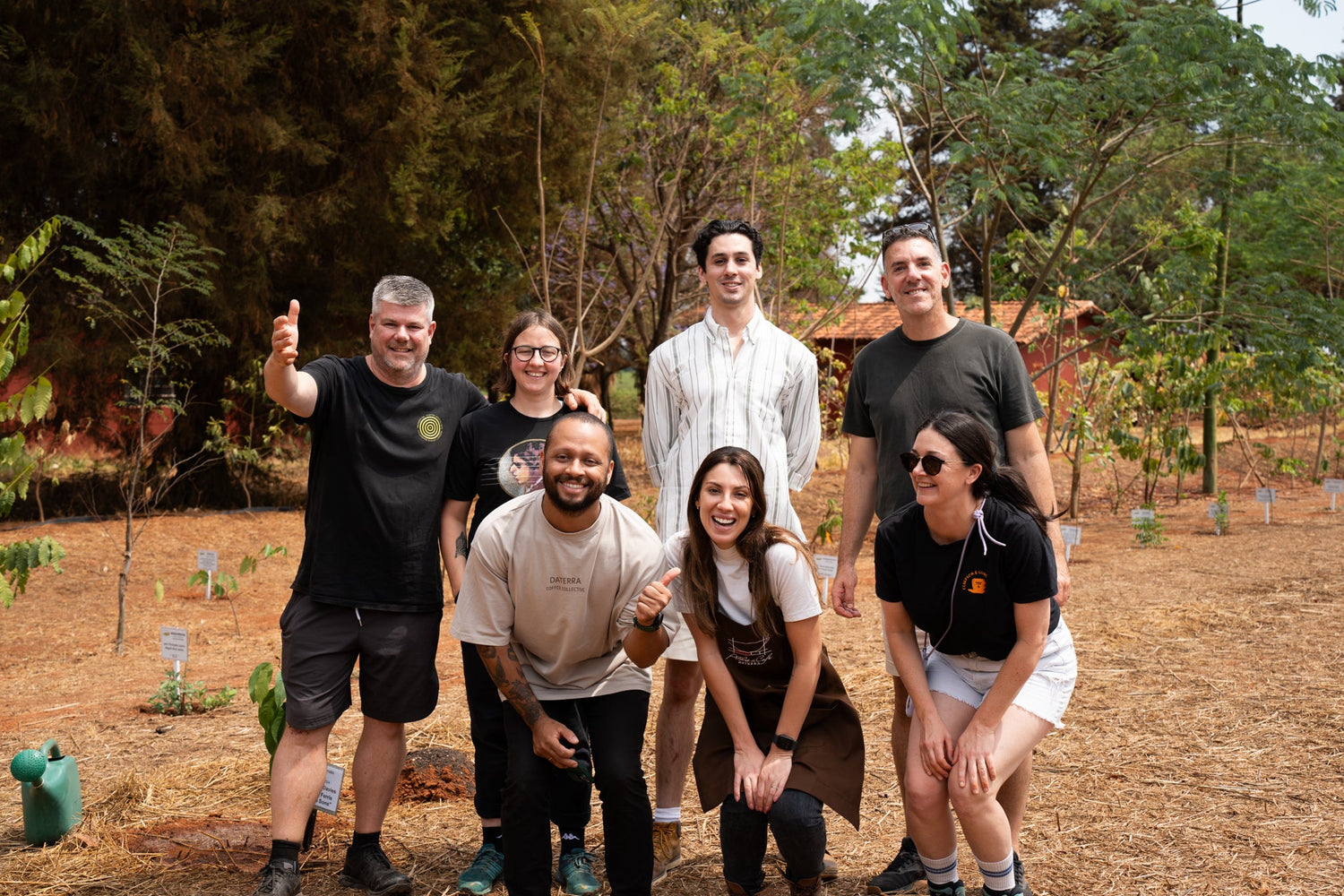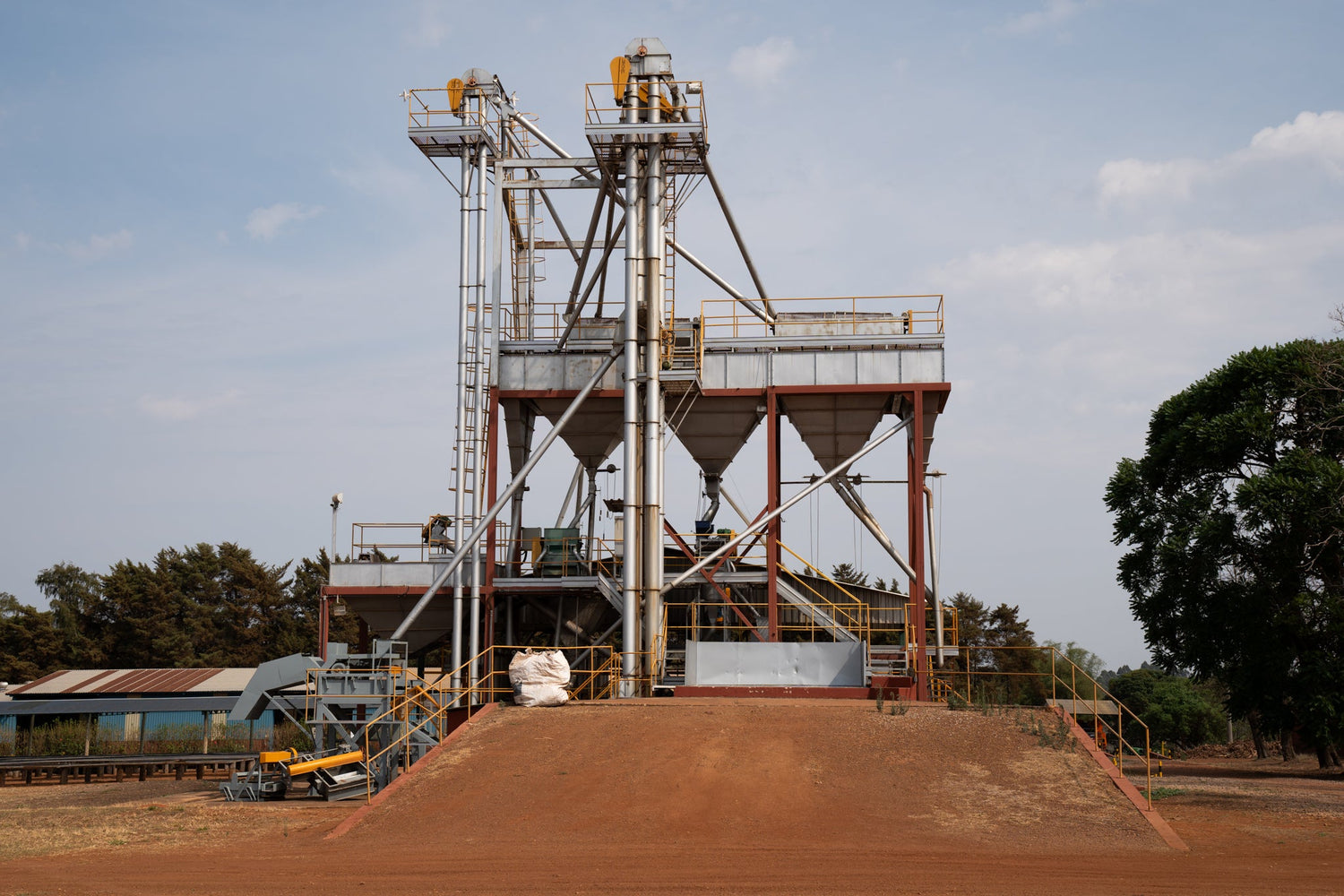 Image courtesy of SCA UK
Image courtesy of SCA UK
I have been known to have a cynicism towards competing and competitions over my time in coffee, wearing my disqualification (DQ) in the 2016 UKBC heats as some kind of badge of honour. However, being involved with my colleague Lisa-Laura Verhoest’s successful 2018 UK Brewers cup win and subsequently travelling to Brazil for the worlds changed all that. I saw first hand the hard work that goes into competing, the mental capacity and creativity it requires, not to mention the bravery of just putting yourself on the line like that. I found it all inspiring and energising.
I always want to try to do something interesting and different, but not just different for the sake of it. So when Simon’s processing project with Daterra came in, I was fascinated to see if the coffee was competition worthy. It was. All the body and sweetness you’d expect from a Brazil, but the processing had turned everything up to 11. The sweetness was layered and complex, with as cleaner dark choc note as I’ve tasted. The bitterness and aftertaste of this coffee were equally striking. Black Plums and an umami note of sea salt amidst the complex sweetness all made for an incredibly luxurious experience. I like to give coffees colours and this was Wimbledon Tennis champs purple. Here was a coffee that was an unfashionable variety, from an unfashionable origin, but through ingenuity and hard work it had been elevated to become something greater than the sum of its parts. Now there’s a story.
Watching barista competitions over the years, one notices a particular structure, a way of talking, a pattern of coffees and so on. I wanted to present something that felt genuine and something only I could have done. It’s quite a challenge given the time constraints and ingrained format of the competition itself.
To tell the story of the coffee in the clearest way possible, I turned to a trusted coffee trainer technique. The extended metaphor. I heard the story of the Roland TR 808 drum machine on a music history podcast. This example of something previously dismissed as average being re-purposed by talented, hard-working people to become something great rang a bell in my head. My coffee! I also knew I had to put 808 beats into my routine which I very much enjoyed.

The competition itself is fantastic. There’s an intense but good-natured atmosphere backstage. It helps to get yourself involved and talk to people, I understand the temptation to keep yourself to yourself and put your game face on, but people will remember you better if you’re open and nice. The actual competition was nowhere near my favourite part of the experience, however.
My favourite part of the whole process is the thing that made me throw away any cynicism for competitions. In all of our work lives, rarely does anything seem finished or completed. With comps, you have a finite amount of time and a definite beginning, middle and end and the concrete, tangible nature of this task feels really good.
We can often to be aiming for an intangible sense of “success”, often handed to us by other people’s perceptions. These perceptions are often very “grown up”. A salary, a job role, the house, the lifestyle etc, etc. Creating something from nothing, staring at a blank page waiting for inspiration and the Willy Wonka-esque playing with flavours is a child-like state we don’t get to step into often. I loved it and that’s why I'll do it again. Doing well is a bonus.
Well done to everyone who entered, especially Paul Ross. Best of luck in Boston mate. Team UK 4eva. Thanks to everyone who helped me as well as Daterra and Simon for the coffee (can’t wait for you to do it again).
Matt x



